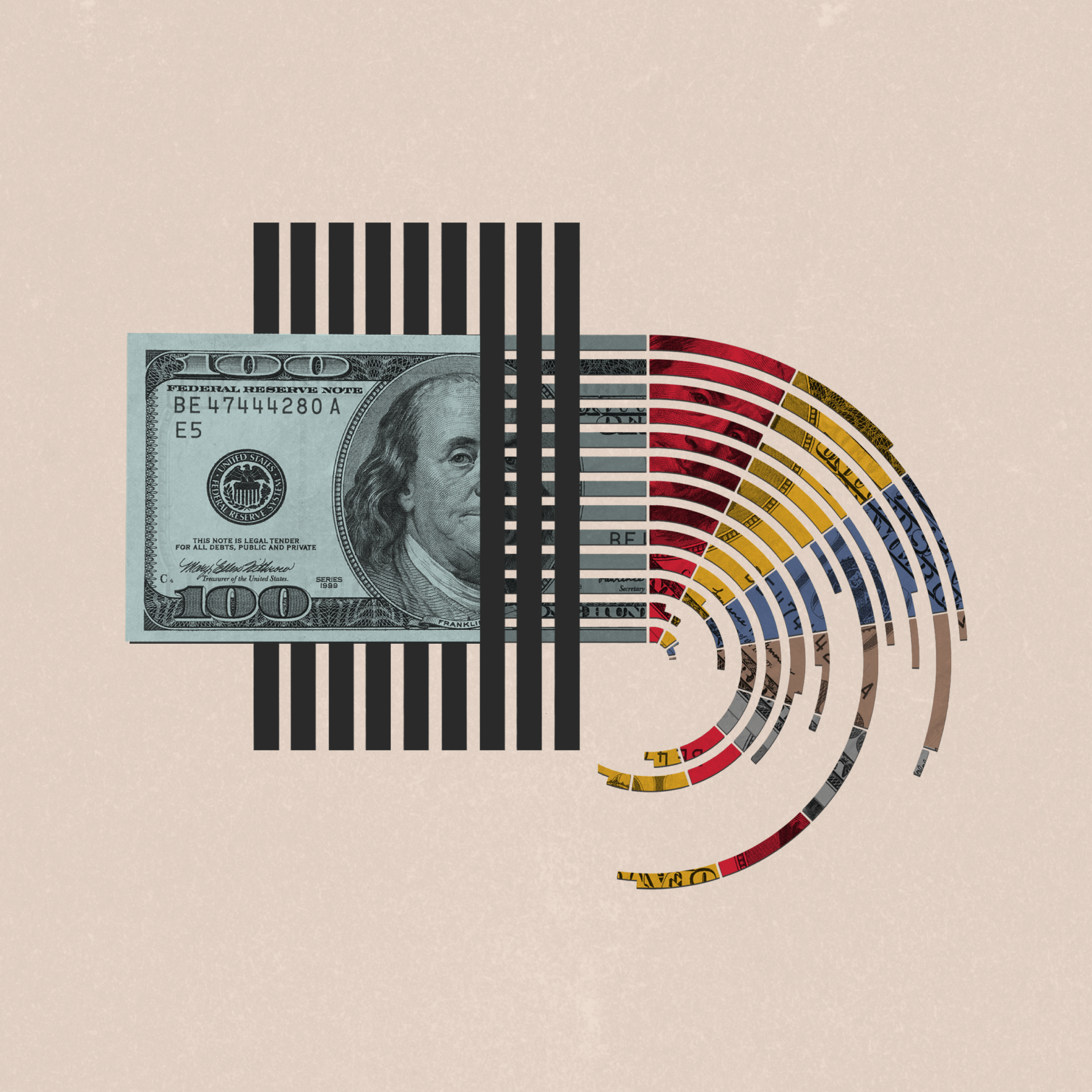
Money & the World
Dumb Questions for Smart People: How Hedge Funds Warp Our World
Sheelah Kolhatkar — the New Yorker staff writer and author of “Black Edge” — explains billionaires, insider trading, and how hedge funds affect everyone.
Wealthsimple makes powerful financial tools to help you grow and manage your money. Learn more
One reason we wanted to talk to you is because we wanted you to explain hedge funds to us. And the other reason is because I just read your book Black Edge (just out in paperback) and it was very good. It reads like a thriller. For people who haven’t read it, what’s it about?
It’s really about the government’s hunt for Stephen A. Cohen, who was one of the most successful hedge-fund founders — a billionaire mogul who had become a legendary figure on Wall Street. Over a number of years, people started to suspect that something improper was going on at his fund. So the FBI, the Securities and Exchange Commission, and prosecutors in Manhattan launched a multiyear investigation of him and his firm. Ultimately, it played out as one of the most dramatic legal cases involving a Wall Street figure.
And you’ve got a background in finance — and hedge funds specifically, right?
Before I got into journalism, I was an analyst for two small hedge funds in New York, so I understood that world. Then a few years ago, when I was working at Bloomberg Businessweek as a writer, a big news story flashed across the TV screens. The FBI had just gone down to Florida and arrested a portfolio manager who worked for Steve Cohen at his hedge fund. This was a really big deal on Wall Street. It was described as the largest insider-trading case ever. It involved $276 million, and it was clear from the way the government presented the case that they were gearing up to go after Cohen himself.
I was drawn to it because it was a juicy story and there's a lot of drama and intrigue and interesting characters, but I also thought it had additional importance.
Ok, now about hedge funds. I feel like that’s a term we hear a lot but people don’t necessarily know what they are. When did the first hedge funds appear?
Hedge funds were originally conceived as boutique, bespoke investment vehicles that catered to wealthy investors. There's a gentleman named Alfred Jones who is credited with starting the first hedge fund in 1949. He had this idea that if you were a very well-to-do person with a large chunk of cash to invest, you didn't necessarily want to dump all of your money straight into the stock market, where your net worth would rise and fall based on how the market was moving. That wasn't a very diversified strategy.
So he came up with this idea that you could create a fund where you hedge your investments. You could go “long” on certain stocks, but then you could “short” other securities, which means you're making a bet that the price will go down. That way, by having some “long investments” and some “short investments,” you would have money that was insulated from the swings in the market.
Shorting on its own is very risky. Not everyone can do it. But by creating an investment vehicle where you have long positions and short positions, they might offset one another. You were hedging your longs with your shorts. Hedge funds really helped popularize shorting and introduced a new way to use it.

Sign up for our weekly non-boring newsletter about money, markets, and more.
By providing your email, you are consenting to receive communications from Wealthsimple Media Inc. Visit our Privacy Policy for more info, or contact us at privacy@wealthsimple.com or 80 Spadina Ave., Toronto, ON.
It's interesting that it was a conservative financial strategy. Because hedge funds are not associated with financial conservatism now.
When this whole strategy first started it was fairly conservative.
Typically hedge funds would charge clients 2% of assets, and that was considered a management fee. Then, at the end of the year, the hedge-fund manager would take a portion of the profits (traditionally 20%) as an incentive fee. This turned out to be an incredible enrichment mechanism for hedge-fund managers. You had people like George Soros, Stanley Druckenmiller, Paul Tudor Jones — those people made their fortunes as hedge-fund traders. Steve Cohen was one of those people. His fund was posting double-digit returns — eye-popping numbers.
Suddenly it didn't look like this conservative little investment vehicle. Thousands of hedge funds opened up. Now there are estimated to be $3 trillion invested in hedge funds around the world.
During this period, how were hedge funds operating differently?
As these funds got bigger and bigger, it became much harder to find good investment opportunities. The problem is that when you figure something out and it's working really well, suddenly everyone else wants to jump in. Whatever profit margin you were hoping to make, it gets sucked up. So the business became much more difficult as the expectations for it rose.
I think this is where a lot of funds got into trouble. It became harder and harder to make money. In exchange for charging enormous fees, there was an expectation among investors that they would outperform the broader market. Some of them ended up crossing the line and getting into trouble in their search for profits.
Was there a certain kind of person who was attracted to managing these funds?
The people working there had a lot more freedom. They didn’t have to wear suits — they could wear jeans and flip-flops to work if they wanted. They didn't have to deal with corporate politics. They didn’t have to share their bonuses. So it drew people who might have gone into other things.
Many of the brightest, most promising college students, who could have gone into all sorts of fields, from medicine to scientific research to teaching, ended up going into the hedge fund world because the potential to make enormous amounts of money was so great.
Did Steve Cohen fit this profile?
He grew up very middle class in Great Neck, Long Island. Money was a little bit tight in his family, and he had a burning drive to be successful on Wall Street and to show all the stuffy rich kids that he was smarter than they were. From early on, even high-school age, he was very interested in investing. He played poker all through high school and college and was extremely good at that.
I would say one of the defining features about him as an investor is that he was very good at managing his emotions. When something was going down, he was very good at acknowledging he'd made a mistake and selling. This is something that trips up a lot of people. They don't want to acknowledge they made an error. But he was very ruthless. He used to even screen his own traders for their ability. They had to be comfortable taking risks, but also be ruthless about cutting losses and not getting emotionally attached to things.
One way to beat the system in the quest of higher returns is inside information. What exactly has to happen for that to be illegal?
Basically, insider trading occurs when someone is in possession of information about a company that could affect its stock price, and the information was disclosed by someone who was not supposed to disclose it, and the person who got that information made a trade based on it. Even if they end up losing money on the trade, the fact that they traded while in possession of this information is a violation of securities laws.
But this is very hard to police. You have to prove all these different elements.
It seems like all the incentives point one way — there’s pressure to beat the market, which invites people to take risks, and the risks encourage people to get inside information, which is very hard to stop.
Some of the FBI agents involved in this case didn't know a lot about hedge funds. When they started to learn about the industry and the way it was structured, many of them said, “Wait a second, this is crazy! It’s set up to encourage insider trading!”
For a particular type of hedge fund, the temptation is very strong. People were under tremendous pressure. Steve Cohen was famous for firing people if they didn't generate the kinds of returns that he wanted. And of course, there’s always personal greed.
Do we know how much of those eye-popping returns at his fund were related to insider trading?
It’s hard to calculate, but the indictment described activity going on at that fund spanning years and years, and linked twelve SAC Capital employees to insider trading in some way.
He ended up paying $1.8 billion to resolve both criminal and S.E.C. charges. However, he was able to write a check for that amount and just go on with his life almost unscathed. It really had very little impact on him financially.
How do hedge funds affect the economy at large?
Short-term trading really causes problems for everyone in the market. It even has an effect on the way the management of a company thinks about their job. They constantly have to worry about their stock price getting batted around by these hedge fund traders.
It has infected the entire business community. You're constantly seeing companies doing things that will push up their stock price in the short term — not making longer-term investments or investing in infrastructure, or developing new products.
When you look at the employment picture in the U.S., and what's happened to the middle class, and the fact that wages for many people haven't gone up in several decades, I think this is part of the problem.
I guess all shareholders put pressure on companies, but it sounds like hedge funds increase it dramatically.
They amplify it. The capital market system was created to help channel money into productive enterprise. They're supposed to be making loans and making mortgages for people. What's happened is they've learned that you can make incredible profits through financial speculation, so they've all reoriented themselves to focus on that. There are a lot of people who believe that this is a big problem, and this is part of what's stifling the economy.
Did your reporting give you a sense of how to reduce these crimes?
I think regulators could make it more difficult to do short-term trading. People have talked about a transaction tax. If we did want to get tough on this kind of thing, and help make the market more transparent and more fair, we could just make it a little less attractive to do short-term trading.
Of course, none of this is likely to happen under the current administration, which has made it clear that it's going to take a hands-off approach to Wall Street crime.
Wil S. Hylton is an American writer. His last book was VANISHED.









